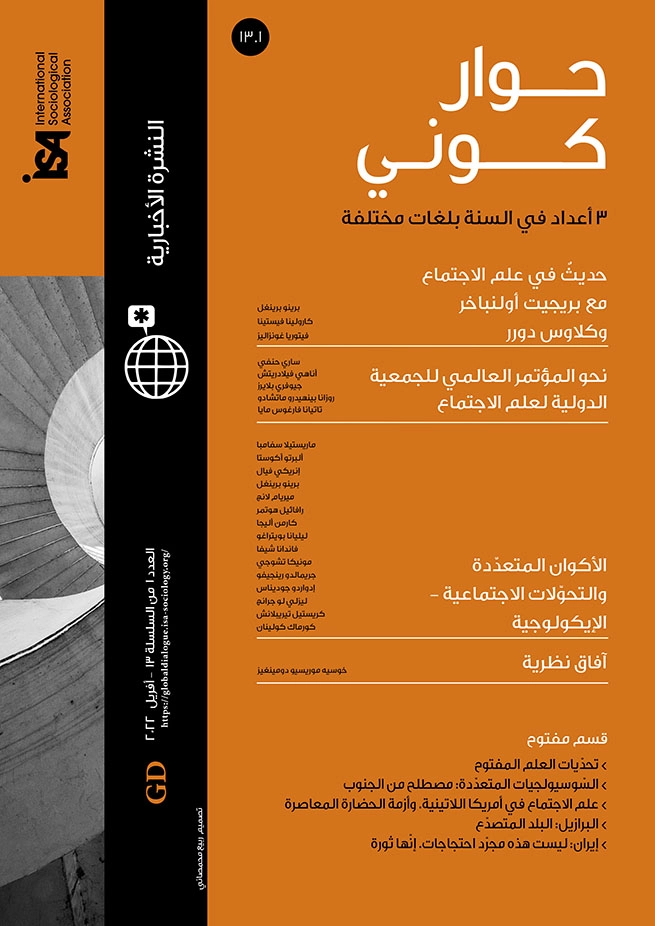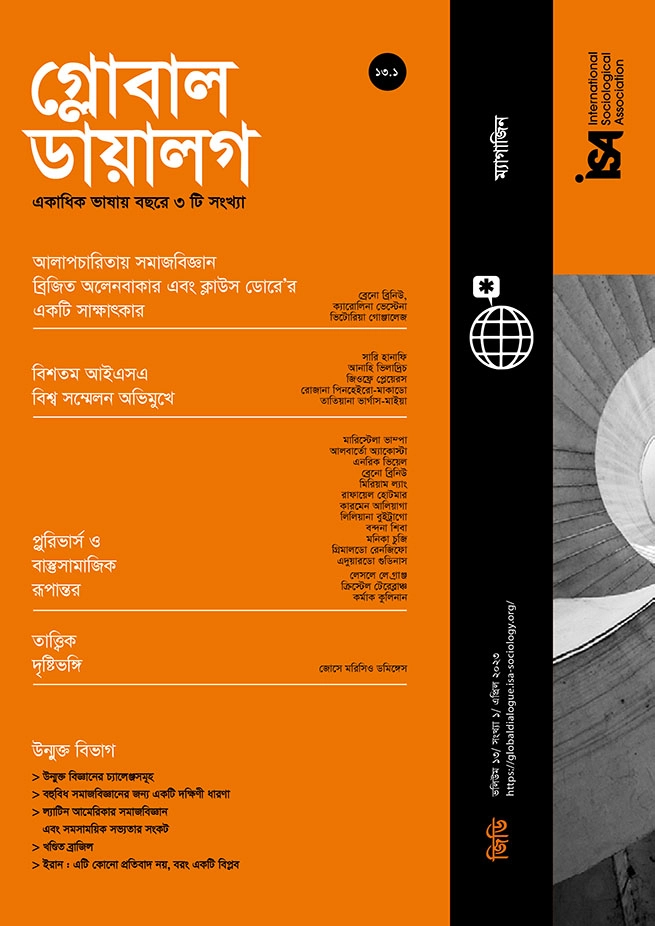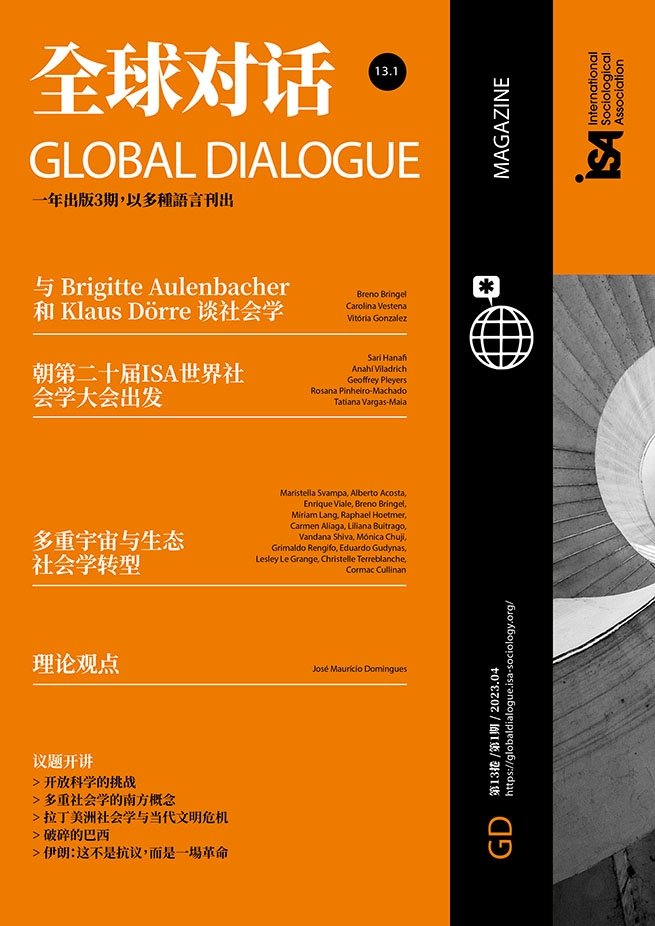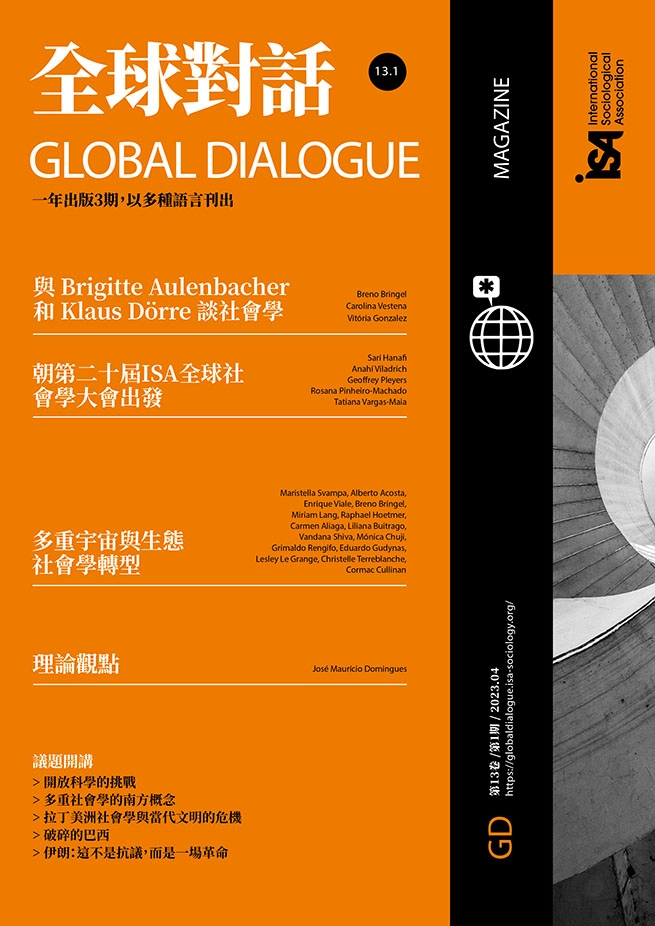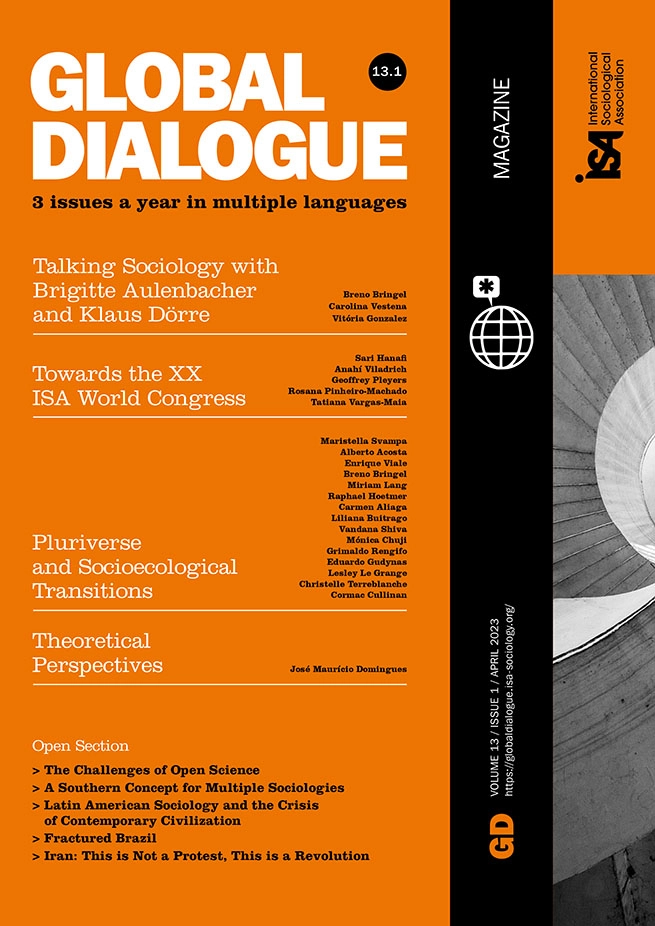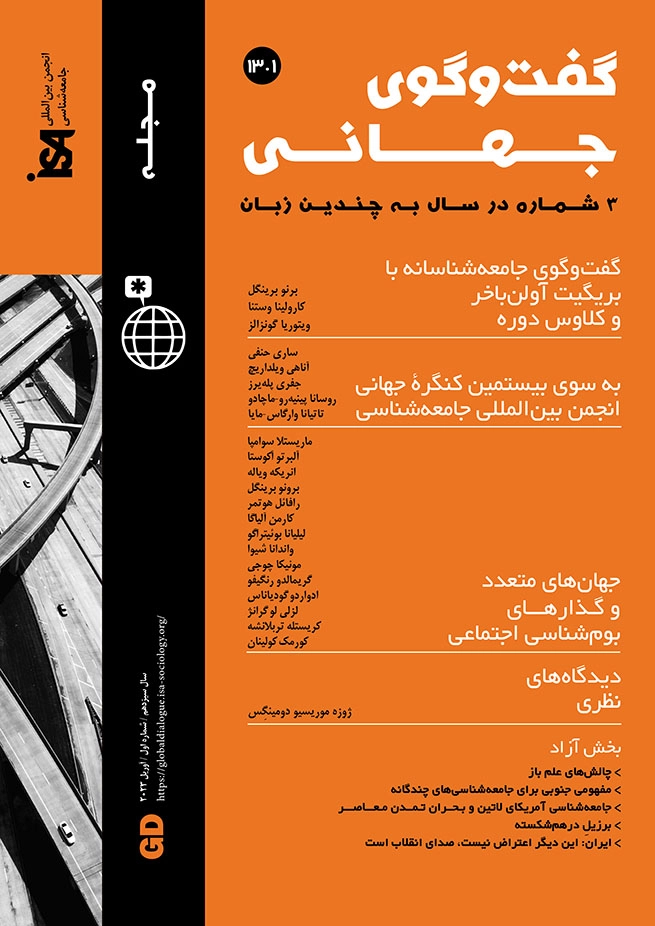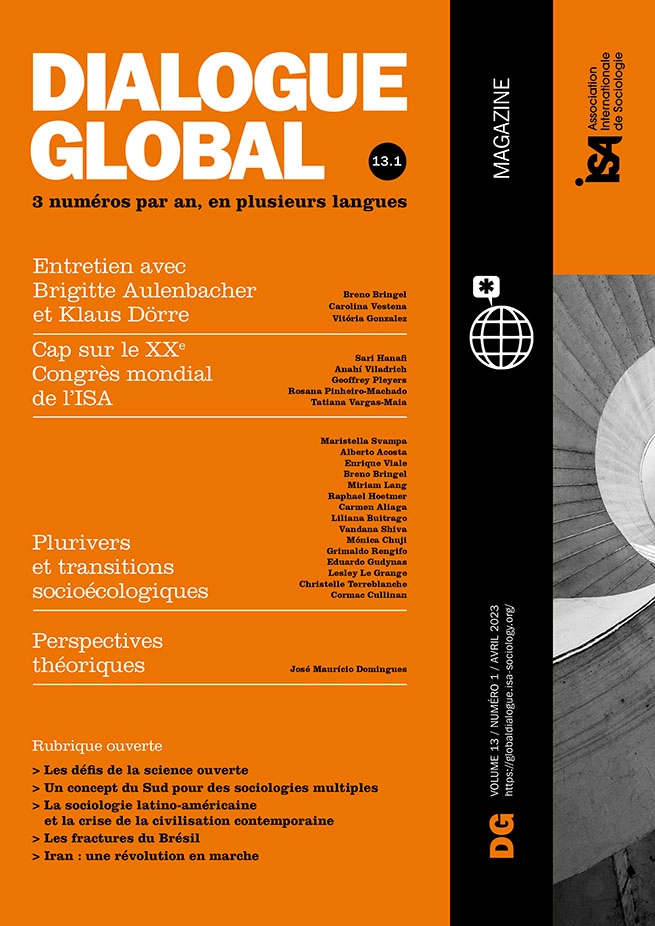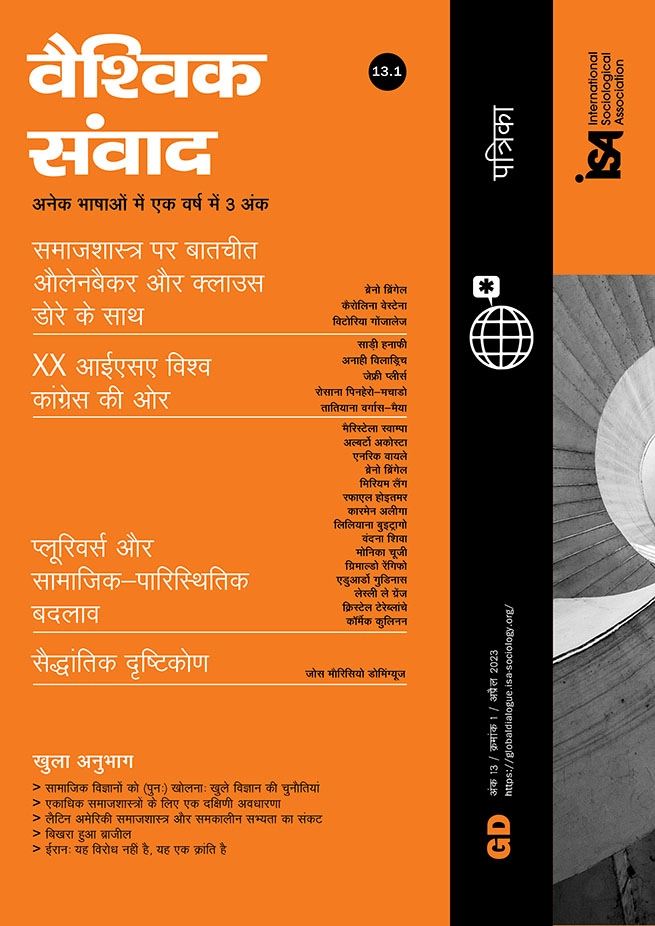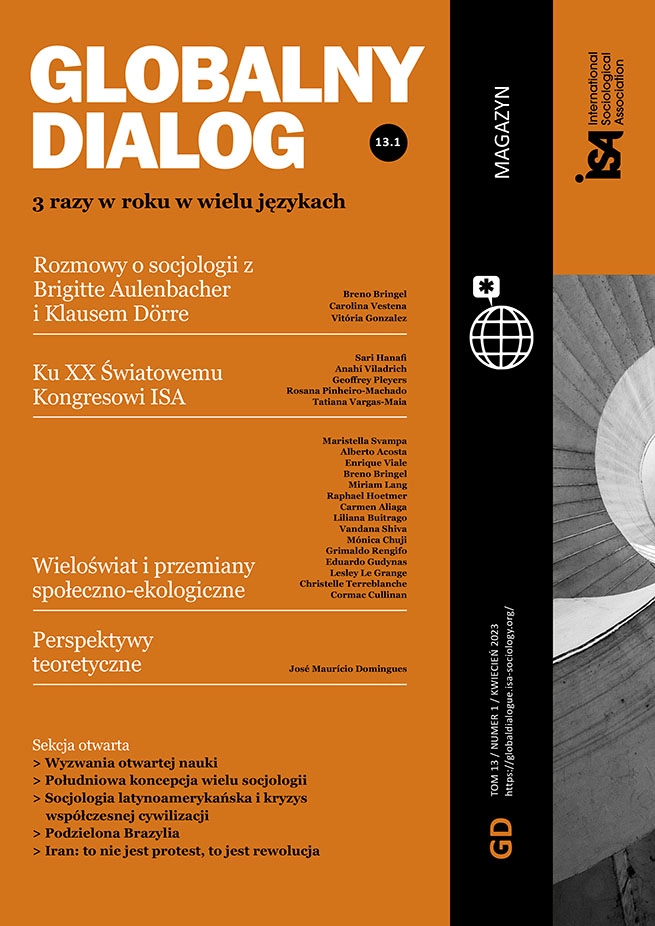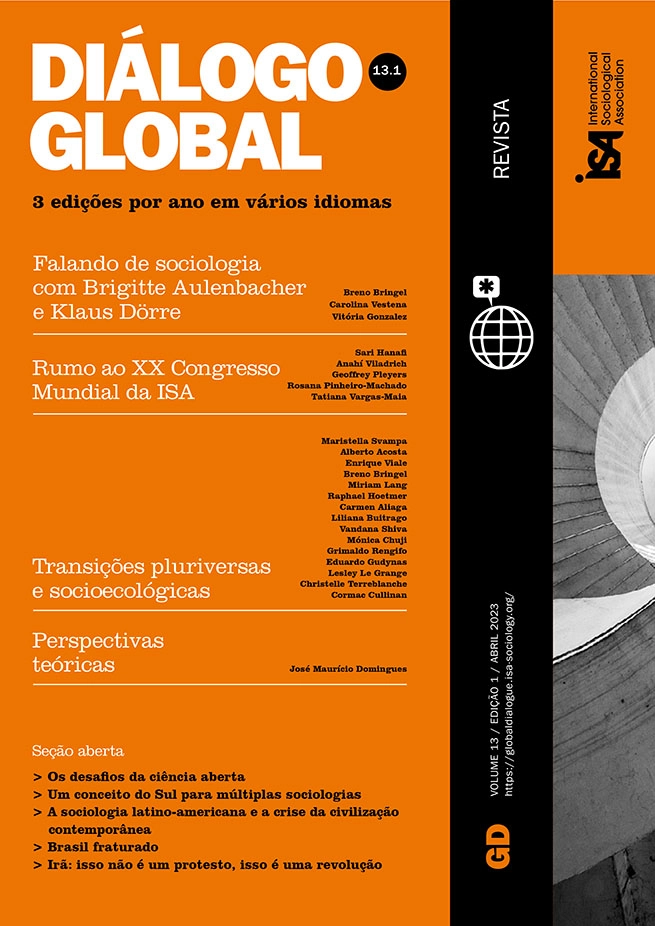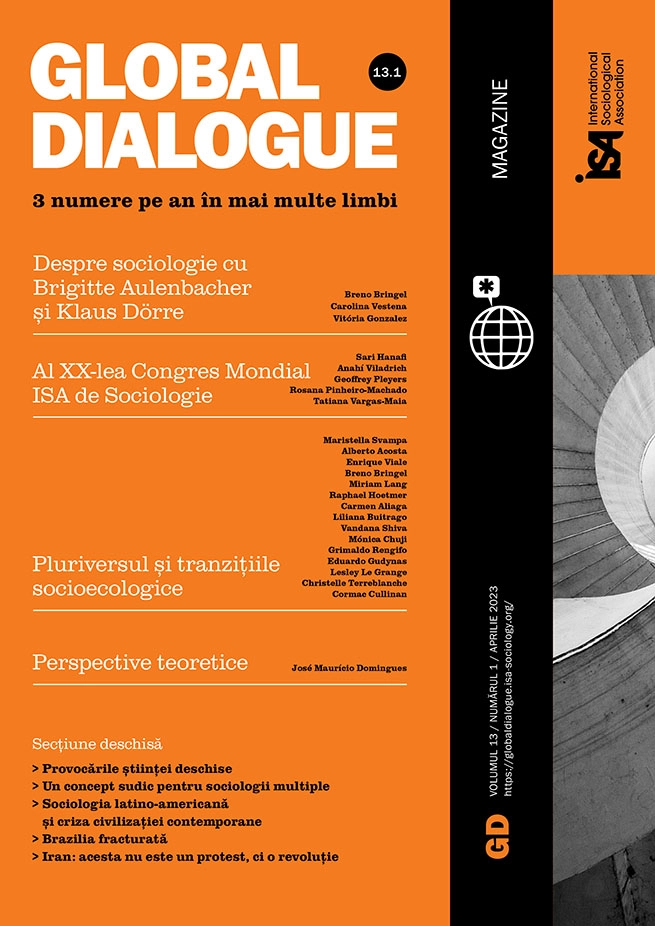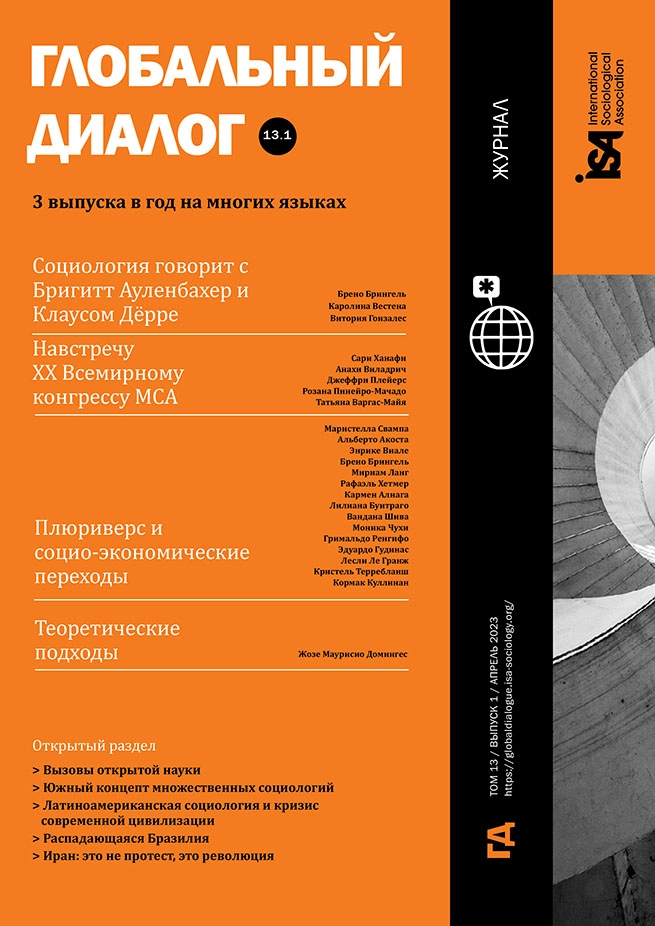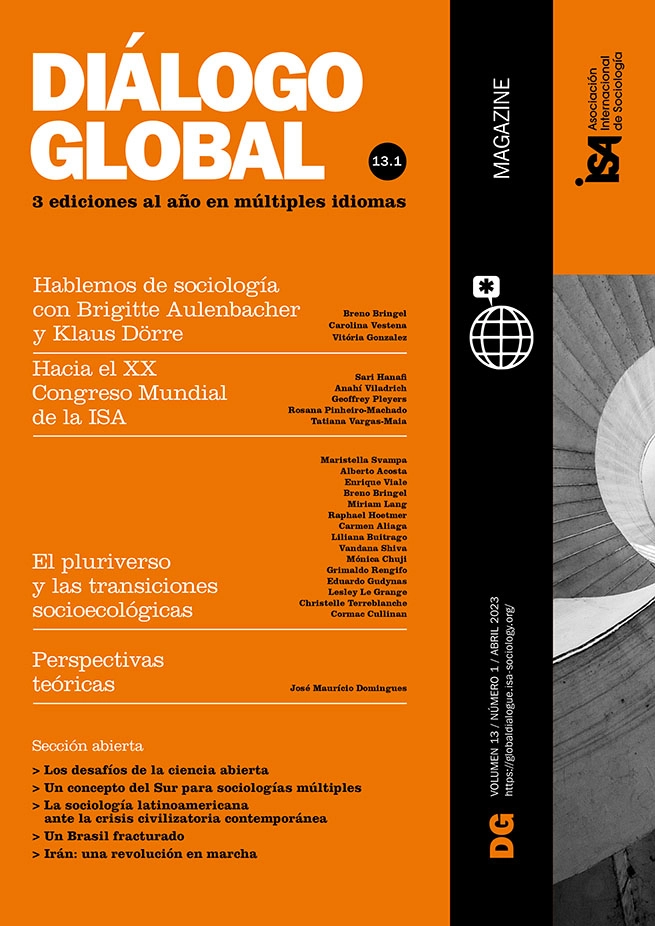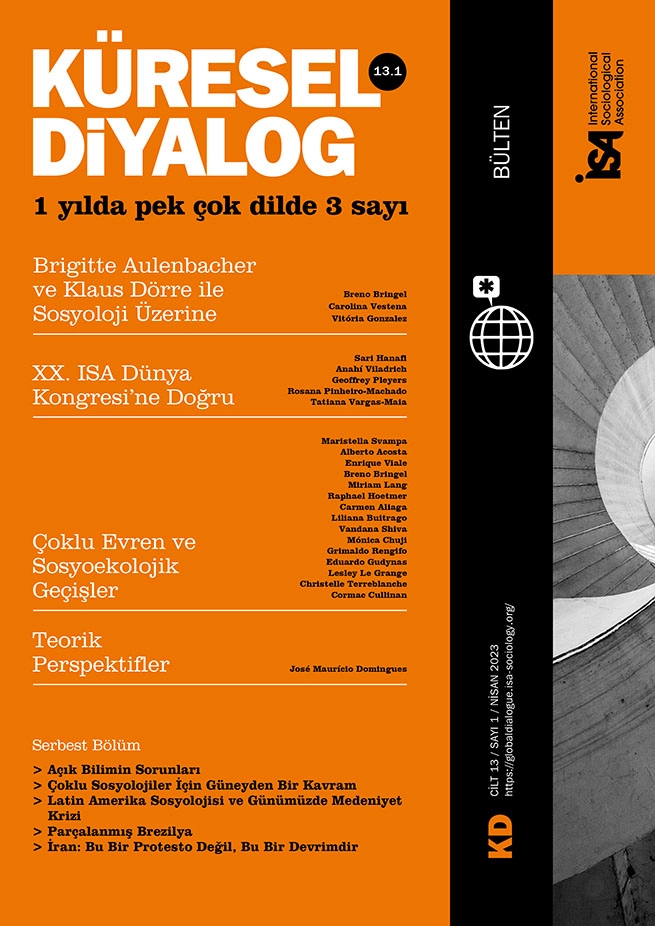Challenges for Public and Global Sociology An Interview with Brigitte Aulenbacher and Klaus Dörre
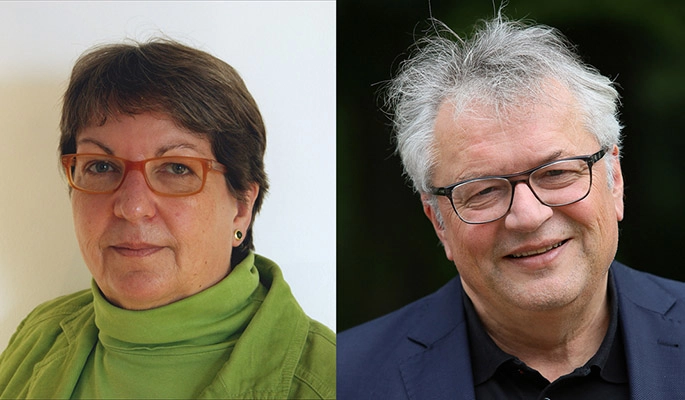
March 09, 2023
Global Dialogue Editors (GDE): How do you transpose the concept of public sociology into your research agenda, bearing in mind both your local research networks and your international engagement within the ISA?
Brigitte Aulenbacher (BA): Public sociology is a concept that allows the dissemination of scientific knowledge and stimulates discourse between academic and non-academic audiences, inspiring sociological work by taking up discussions from different societal fields. As Michael Burawoy coined the term, it is an overarching concept to describe the engagement of sociologists making their scientific knowledge available (“traditional” public sociology) or engaging in initiatives that emerge from civic society (“organic” public sociology). As a critical sociologist, I work on a twofold agenda combining the theory of society, in particular, the analysis of contemporary capitalism from a feminist and intersectional perspective, with empirical investigation of the transformation of work, labor, care and science – covering phenomena like digitalization, domestic work and senior home care, residential care or the marketization of universities. If we take the second era of globalization (since the 1990s) as a turning point, we are witnessing a transformation of capitalism culminating in economic, ecological, social, and political crises and evoking a lot of protests.
From my perspective, this development is caused by what I call the structural carelessness of the capitalist economy. Rooted in the modern Eurocentric and androcentric idea of man and scientific–technological progress striving to master both human and non-human nature, and of competition and growth, the capitalist economy distances itself from ecological and social needs by neglecting them, subordinating them to or valorizing them by its accumulation-, profit- and market-driven mode of production. This goes along with dominance in relations of gender, race and class. The destructive effects, seen in the broad scope of climate change and increasing poverty and inequalities, as well as the political reactions, e.g. the authoritarian shift around the globe, are obvious. In Austria, we rediscovered the modern classic works of Karl Polanyi and founded the International Karl Polanyi Society making use of his comprehension of the history of market capitalism as the result of a “double movement”: the “movement” of the destructive market-fundamentalist commodification of nature, labor, money and, we can add, care, knowledge and other “fictitious commodities”; together with “countermovements”, e.g. labor and social movements represented by trade unions, Fridays for Future, care initiatives and many others, struggling against the disastrous effects of neoliberal market capitalism. Public sociology in my local and international networks and in Global Dialogue’s sections analyzing the transformation of capitalism, work and labor, care and science under neoliberalism is focused on sociological theory but also on practical or political recommendations.
In our discipline, there is considerable lack of agreement as to whether and how sociology should go public: should the discipline observe, analyze and describe societal development or should it interfere? As sociology is part of the society that it studies, there is no privileged standpoint allowing us to tell people what they must do – either with regard to their reflections on and analysis of contemporary developments or with regard to their activities. But sociologists can provide scientific knowledge and stimulate debates and, as researchers, can be part of alliances of different actors negotiating future perspectives and ways of safeguarding and sustaining livelihoods. In my research fields, there are many collaborations with museums, institutions of public education (Volkshochschulen), churches, trade unions and many others. Bringing together articles from around the world, Global Dialogue is of interest for local as well as international discussions.
Klaus Dörre (KD): In my case, I first became acquainted with Michael Burawoy’s public sociology concept during a SWOP conference in Johannesburg in 2012. Until then, it was almost unknown in German-speaking sociology. I was immediately electrified because, during the debate with the Public Sociology Group in Johannesburg, I realized that it was an approach that could innovatively ground research conceptually, as my team was already doing to some extent. I tried – with Brigitte Aulenbacher and others – to bring the debate about public sociology into the hitherto somewhat ignorant world of German-speaking sociology. We were successful, even though reservations within sectors of the discipline are still significant. In Jena, the concept of public sociology has now become a standard. This also applies to my own research group, which, for example, studies labor relations and trade unions in the sense of organic public sociology.
My most significant current experience with organic public sociology is based on a close collaboration with the left wing of the climate movement. Inspired by the founding of Students for Future with 1,500 participants in the German city of Leipzig, I wrote the book Die Utopie des Sozialismus: Kompass für eine Nachhaltigkeitsrevolution (The Utopia of Socialism: Compass for a Sustainability Revolution), which is being widely discussed within climate movements. Together with those students, I started the project “Renewing Socialist Politics from Below.” We are studying cases that are successfully implementing emancipatory socialist politics locally or regionally, and in some cases against the prevailing trend – and where possible, worldwide. Besides working groups in Germany, there are already interested parties in Brazil, Argentina, Chile, France, Greece, Italy, Portugal and some other countries. We want to expand the network and, if possible, extend it to every continent. The plan is to bring the empirical case studies together in a study along the lines of Pierre Bourdieu’s La misère du monde – though we are interested in discovering approaches that help overcome the world’s misery. We are particularly interested in new collective forms of property and interactions between class struggle and ecological social conflict. We invite all interested parties to cooperate.
GDE: What are the most important challenges you have faced in your work as editors of Global Dialogue when it comes to promoting the agenda of the magazine and disseminating it globally?
BA: Although our core editorial team has been interconnected internationally very strongly, this alone would not have been sufficient to cover the sociologies of so many countries. There are at least three challenges. First, the hegemonies, hierarchies and power relations inside the discipline privilege the sociologies of the Global North and the West in terms of dissemination, recognition and influence. If young scholars from the regional editorial teams or outside them applied to organize a country focus or section‚ such as the “Talking Sociology” section of Global Dialogue, they often argued that there are important sociological results in their respective national sociologies which have never reached the international debate. Second, the strong support from the ISA presidents as well as the Executive Committee members as consulting editors has made it possible to present global sociology. On their travels, Margaret Abraham and Sari Hanafi invited colleagues from different countries to make contributions, or colleagues from the Executive Committee organized different country focuses. Third, there is one further gap in knowledge production, and it is the most difficult to deal with: there is a lot of research into development in the Global South and in the East from the perspective of the Global North and West, but less the other way around. It is a challenge to acquire pieces from this latter perspective.
KD: In my view, a central problem is the provincial narrow-mindedness that still characterizes German-speaking and, to varying degrees, (Western) European sociology. We stew in our own juice too much, and research within the boundaries of the long-eroding Western European social capitalism. For me, it is not easy to break free from this narrow-mindedness. This has become increasingly clear to me in the collaborations between Global Dialogue and the Latin American Council of Social Sciences (CLACSO) network. The accusation of Eurocentrism was repeatedly heard – often justifiably. This hinders global sociological exchange. However, there are European points of view that are also perfectly legitimate sociologically on a global scale. For example, when I suggested devoting a special issue of Global Dialogue to the war in Ukraine, I was met with skepticism and rejection. Such skepticism is misguided: the argument that the more than twenty wars that are co-occurring worldwide do not enjoy the same attention despite high casualty figures is understandable but analytically wrong. The war over Ukraine is a war for a new world order, which includes the danger of a confrontation between nuclear powers. It is a global war in its consequences, making it necessary to revive E.P. Thompson’s concept of “exterminism” and to fill it with new content. Exterminism refers to mechanisms of economies, political orders, and ideologies that act as a thrust in a direction whose result is inevitably the extermination of large masses of people. The Ukraine war catalyzes “double exterminism”, in the words of John Bellamy Foster. Even if nuclear war can be avoided, accelerated armament and the continuation of extractivist modes of production dramatically increase the risk of ecocide.
GDE: A final question for both: When thinking about the agenda for the future, which perspectives on global sociology are in your opinion the most important ones to address? Let’s invert the order and start with you, Klaus.
KD: The dangers of double exterminism also touch sociology as a subject, Global Dialogue included. We must ask ourselves what we can do with the means and methods of sociology to make what the world urgently needs possible: a social and ecological sustainability revolution. We must overcome the instrumental relationship with non-human nature and other living beings that has been existing since the Neolithic Revolution. This will only be possible in societies that are much more egalitarian and democratic than today’s society under contemporary capitalism. If such a transformation fails, a new authoritarianism of “save yourself!” looms. The emergence of this new authoritarianism, or even fascism, is much more likely than a progressive way out of our economic–ecological meta-crisis. We must place the transformation problem much more strongly at the center of global sociological exchange. For example, we have known since the first report of the Club of Rome that the world is heading for an “abyss” due to global warming and the exploitation of resources. Why is it that, despite this, more still needs to be done 50 years later, and only non-sustainability has been sustainable? How can this be changed? What type of society is required to support a sustainability revolution? In this context, we should be clear: sustainability is, according to the unjustly all-but-forgotten German sociologist Karl Hermann Tjaden, the antithesis of violence. Violence finds its expression in wars and gender relations, the relationship between ethnic groups or class-based exploitation.
Revolutionary sustainability also calls for us sociologists to rethink our role in society. We not only need to get out of our ivory tower, as suggested by Michael Burawoy years ago, we should also consider how to reorient public sociology. In his new book, Karl von Holdt proposes “critical engagement” as an emancipatory variant of public sociology that does not shy away from critically addressing the professional mainstream of the discipline that settles for maintaining the status quo. This fruitful approach that deserves worldwide debate is met with enthusiasm by students because a public sociology that can also be “right-wing” is too ill-defined for them. The fact that committed students think this way, despite all their career constraints, is a sign of hope for me.
BA: There are two aspects I would like to mention. First, from my perspective, there is considerable potential in collaborations between sociology and the arts. The new strand of art research and the contributions of artists to the debate about the contemporary and future development of society are remarkable. Our editorial team started some collaborations by requesting a photo story, photos, pictures and art research. However, much more is possible and could open new ways of reaching out to academic and non-academic audiences by combining sociology and arts on a local as well as a global level. Second, Global Dialogue can stimulate discourse by bringing together analyses and diagnoses of contemporary societal development from different lines of research around the globe. However, the steps that need to be taken or to be encouraged are international research networks that give space to the perspectives of different sociologies and countries, and to the search for common insights into societal development and solutions for the most pressing issues of our time. From my perspective, public sociology – the development of dissemination strategies as well as collaborations with different stakeholders in the various fields – must be an integral part of such a research agenda and research networks.
Brigitte Aulenbacher, Johannes Kepler University, Austria <Brigitte.Aulenbacher@jku.at>
Klaus Dörre, Friedrich-Schiller-Universität Jena, Germany <klaus.doerre@uni-jena.de>

